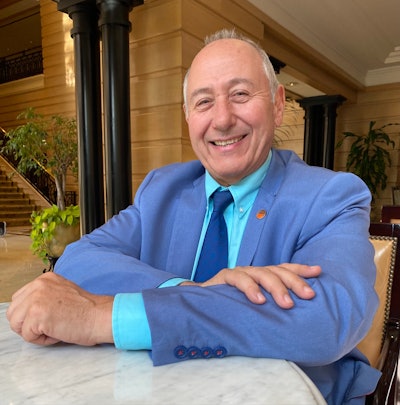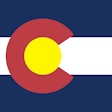
The Paris-based World Organisation for Animal Health (WOAH) celebrates its 100th anniversary this year. Since its establishment, the organization’s director generals have always been French This may, however, be about to change.
WATT Global Media's Mark Clements spoke to Argentinian director general candidate Dr. Luis Barcos during the recent International Poultry Council meeting, held in Buenos Aires, in mid-May, about his candidature for the office.
CLEMENTS: Tell us what qualifies you as a candidate for director general of the WOAH, and how your candidacy came about.
BARCOS: I was in a meeting with the of Veterinary Officers (CVOs) of Latin America and they asked me what was the profile of a WOAH director general. I explained, detailed the experience needed, and they said, “Why don’t you do it?”
CLEMENTS: Perhaps you could elaborate on your experience for me.
BARCOS: I have extensive experience, first in the private sector – I was a farm veterinarian for 18 years, and then in the public sector as the CVO for Argentina. For the last 20 years I have been WOAH’s, or as it was formerly known, the OIE’s, regional representative for the Americas.
CLEMENTS: How would you like to see the WOAH evolve?
BARCOS: I come from a country that is not highly developed, the countries in the global south are different to developed countries.
WOAH must develop standards, working with science to ensure safety. I need to continue to promote this while, at the same time, taking into account the differences in different countries.
Additionally, WOAH needs to work closely not only with governments, but also, importantly, with industry and academics. We need to be more inclusive.
CLEMENTS: Tell us more about inclusivity.
BARCOS: We need to have more formal interaction, working more closely with the private sector and others too. When you need trade standards, industry should be the real life partner for real life trade standards.
CLEMENTS: You mentioned working more with academics. Why do you see this as being so important?
BARCOS: We have stable and unstable partners, politicians come and go and with this policies change. New ministers undo the work of previous ministers, and this cycle is ongoing. Academics, however, tend to stay in academia for a long time, offering continuity.
Additionally, academics are ideally placed for sharing information, for educating the young, for example about One Health.
CLEMENTS: There is increasing concern about the spread of highly pathogenic avian influenza (HPAI) into ever-more mammals and the growing risk to humans, could you comment on this?
BARCOS: The dynamic of the spread of HPAI is now dramatically different and its spread represents a failure by doctors and veterinarians.
It is worth remembering that 70% of human diseases come from animals. If the veterinary services have a good budget, sufficient human resources and good logistics, we can stop animal diseases before they reach humans.
We need to increase not only the visibility of the veterinary services but also their budget. Elevating national commitments to veterinary services across all stakeholders, including within public-private partnerships, could help in this regard.
CLEMENTS: But even with a significant increase in funding, there is never a guarantee that rules and regulations, for example, will be correctly applied.
BARCOS: The key point here is education. Enforcement alone is not the answer, we must recognize this. The point is education and reducing the disease burden and its impact.
CLEMENTS: Do you have a final comment about what you would bring to the WOAH presidency?
BARCOS: Yes. I would like to see a change in where the WOAH holds its meetings. The organization holds about 70 meetings each year, but attendance is not what it could be.
What would happen if we were to hold our meetings in developing countries? This would help to raise visibility, for example, local ministers would attend and there would be side meetings. We could choose the country with the weakest approach to animal health, where an increase in visibility might have the greatest impact. This would increase inclusivity, education and foster greater participation to WOAH’s activities.



















